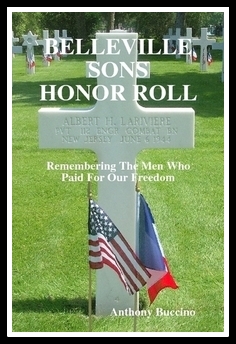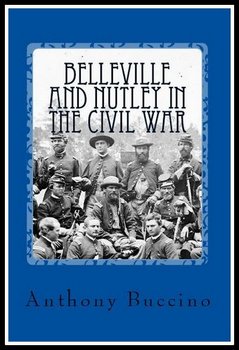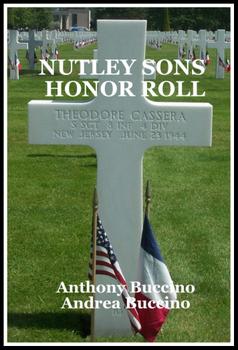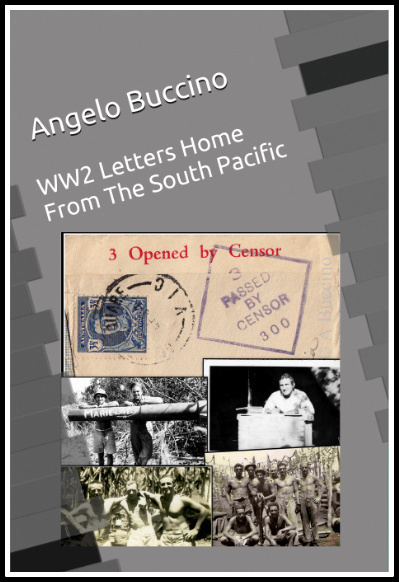|
Nutley soldier, Manus Brown, Killed in American Revolution, Is buried in Belleville cemetery By Michael Perrone |
|
|
Private Harmanus Brown was the first known soldier of Nutley to give his life in service to his new country. He is buried at the Dutch Reformed Church Cemetery alongside more than five dozen local veterans of the American Revolution.
A half century earlier dignitaries and residents had gathered in front of Nutley High School and unveiled a new monument. There the excited crowd of 250 admired the massive boulder with the bronze plaque, the work of the Yantacaw Chapter of the Daughters of the American Revolution. They were there to proudly dedicate the memorial to the first men of the township who had served the new nation, the ten men of Nutley known to have fought in the Revolutionary War. Mayor Harry Chenoweth called the monument "a magnificent achievement"..."for the Town of Nutley this memorial-dedicated to these men who first answered the call of their country". Last September an out of state visitor contacted the Belleville Historical Society and requested a tour of the historic Belleville Dutch Reformed Church cemetery, the final resting place of sixty-six Revolutionary War soldiers. The visitor was the 5-x great grand daughter of Henry Brown, whose name is the first name engraved on the Nutley plaque. Henry Brown lived in the Spring Garden section of town and served as a Lieutenant in the 1st Regiment of the Essex County Militia. He is buried in the Dutch Church cemetery. The Historical Society was then provided with contact information for other Brown family members who could provide greater details on the family history. The results of several months of correspondence with Brown's descendants and research at the New Jersey Historical Society is making this year's 4th of July especially meaningful. Under the cover of darkness, shortly after midnight on June 7, 1780, the colony of New Jersey was invaded by a massive army from New York. Commanded by German General Wilhelm von Knyphausen, the force of 3,000 German and 3,000 British soldiers landed in Elizabeth. For the record the Germans usually referred to as "Hessians" and "mercenaries" -- were not. The Germans were from half a dozen different German kingdoms were allies of Great Britain by treaty. They were the regular German army, fighting under German generals and German flags. King George himself, although born in England, was of German descent and was at the same time both King of England and prince of the German kingdom of Hanover. So American troops have been dealing with Germans long before Normandy and the Battle of the Bulge. General von Knyphausen believed he now had the opportunity to destroy George Washington and his army at Morristown. The winter of 1780 had been the most severe in 100 years. The Continental Army had been devastated by the cold, disease, lack of food and desertion. Von Kynphausen's spies assured the general that Washington's army was about to mutiny.
Von Kynphausen was confident that he would be the one to finally put an end to the American rebellion and then be rewarded with royal honors. The march from Elizabeth to Morristown was expected to be swift with little local resistance. However shortly after the invaders landed, they were spotted by American scouts. Riders were sent out to alert Washington at Morristown and to summon the Essex and Morris County Militias. The Second River (Belleville) Dutch Reformed Church served as the local military headquarters. The mostly Dutch village of Second River was a patriot stronghold. A guard was kept in the church steeple along with an old mortar (left over from the French and Indian War) to be fired if needed to alert the militia. The local militia unit was commanded by Captain Abraham Spear who's farm was located along present day Chestnut Street in Nutley. The blast of the mortar in the middle of the night sent the men scurrying out of their beds and reaching for their muskets and powder horns. The church bells began to ring and the hundred men of the militia formed ranks quickly. Among them was Lieutenant Henry Brown, his 18 year old son Hermanus "Manus" who had just joined the militia, and Henry's cousins Issac and John Brown. The company marched off under orders of Brigadier General Philip van Cortlandt, commanding officer of the Essex County Militia, to take up positions at Connecticut Farms (Union). At 9 am the enemy appeared and the militiamen engaged in what would be a furious three hour battle. Greatly outnumbered and outgunned the Americans withdrew into the woods but they had successfully halted General Knyphausen's advance. Later that afternoon George Washington and the Continental Army arrived and planned a counteroffensive. Von Knyphausen was surprised and concerned by the stiff American resistance and the growing number of militia reinforcements arriving. He decided to order a retreat of his troops back to their boats at Elizabeth. General Washington issued an order that three regiments were to pursue the enemy from three different positions. General van Cortlandt was to take the Essex County militia and attack from the left flank, with the Continental Army and the Morris militia taking the center and right flanks. The Americans pursued the retreating enemy across a sweeping meadow. Unknown to the Americans, hidden in the woods at the end of the meadow the enemy had set up a line of artillery to cover their retreat. As the militiamen and Continentals charged across the fields a barrage of cannon fire rained down on them from the woods. Private Harmanus Brown, only 18, musket in hand, bravely charged across the open field towards and against the worlds most powerful army. The youthful Brown must have felt like fellow militiaman Ashbed Green, who described the fiery charge across the meadow, writing in his diary, "no thunderstorm I have ever witnessed, either in loudness of sound or the shaking of the earth, equaled what I saw and felt in crossing that meadow". As the pursuit continued, in the hail of cannonballs, tragically one found its mark and tore into the young patriot killing him instantly. Harmanus Brown's brief military career ended just twelve miles from his home.
Private Harmanus Brown was buried in the cemetery of the Dutch church where he had been baptized eighteen years earlier on a cold December morning. His tombstone read, "Harmanus, son of Henry and Rachel Brown, died, 8 June, 1780, in the 18 year of his age". The stone bore an epitaph that read "Behold me here, as you pass by, Who died for Liberty, From British tyrants now I'm free, My friends prepare to follow me". The war continued for three more years after his death. Private Harmanus Brown was the first known soldier of Nutley to give his life in service to his new country. He rests with sixty-six other Revolutionary War soldiers at the old Dutch Churchyard where their honored remains are remembered and celebrated everyday and especially on the morning of the 4th of July. The Belleville Historical Society dedicated a new monument to Private Harmanus Brown at the old Belleville Dutch Reformed Church on July 4, 2015. For more information about the July 4th morning ceremony contact Michael Perrone at 973-780-7852 or email Bellevillehistory@gmail.com Courtesy Michael Perrone, president of the Belleville Historical Society |
Belleville Sons Honor RollA Place of Honor and Remembrance In the Home of the Brave Belleville, New Jersey American Revolution Belleville and Nutley were the village of Second River, that is, the village included all the land between the Second and Third rivers, or roughly from present day Mill Street in Belleville to Kingsland Road at the Nutley-Clifton border. SUPPORT THIS SITE and OUR CONTINUING RESEARCH
Belleville
Sons Honor Roll On Amazon Belleville and Nutley in the Civil War - a brief history On Amazon Nutley Sons Honor Roll Remembering The Men Who Paid For Our Freedom On Amazon
WW2 Letters Home by Angelo Buccino
© 2003
by Anthony Buccino
Permissions & other snail mail: PO Box 110252 Nutley NJ 07110 |
|
BellevilleSons.com copyright © 2003-2024 By Anthony Buccino. All rights reserved. Permissions & other snail mail: PO Box 110252 Nutley NJ 07110 Support this website by buying a book BELLEVILLE SONS HONOR ROLL - Remembering the men who paid for our freedom |
|



